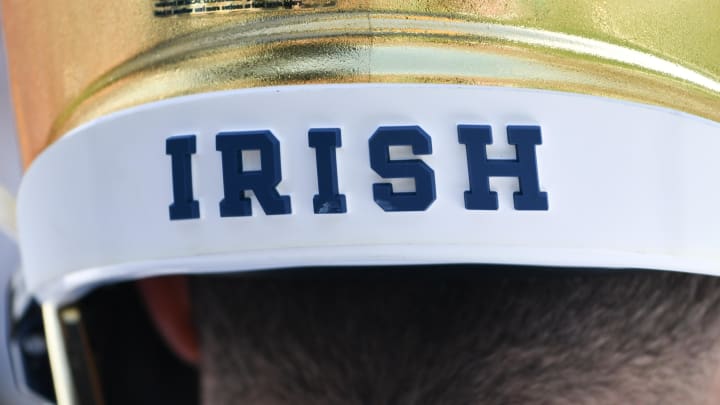The Notre Dame ... Blue Comets?

The Notre Dame Fighting Irish nickname is not just one of the most recognizable in all of college sports but is also one of the most iconic of any sports team worldwide. Imagine for a second, though, that instead of being "Fighting Irish," it was something incredibly lame.
That was nearly the case almost 100-years ago when Notre Dame's football team still traveled to play any marquee opponent it could, but didn't carry an official nickname.
A few of the unofficial nicknames spoke to Notre Dame's traveling ways. Rockne's Ramblers, Rockne's Rovers, and the Rambling Irish were just a few of them.
Notre Dame brass didn't like those names, though, because they believed they made the football players sound like they were always traveling and never in class.
Enter Francis Wallace, a former Notre Dame student and press agent for Knute Rockne. After graduating in 1923, Wallace began working as a sports writer in New York.
Wallace noticed these nicknames being used in the New York papers and was well aware what the administrators back in South Bend thought of them. His solution?
Start calling Notre Dame's football team the "Blue Comets."
According to Murray Sperber's Shake Down the Thunder: The Creation of Notre Dame Football from 1993, Wallace created this nickname based on Notre Dame's blue uniforms and quick offense.
Needless to say, the nickname worked about as well as a Tyrone Willingham gameplan against USC.
By 1925, Wallace had already moved on from the Blue Comets disaster and instead started referring to the football team as the "Fighting Irish." When Wallace moved to the New York Daily News in 1927, he found a significantly bigger audience, which he used to popularize the "Fighting Irish" nickname.
Not long after, Notre Dame's administration responded to a mailed question about the use of "Fighting Irish," essentially saying that it's an honor to have the fight of the Irish, regardless of one's ethnicity.
And hence, Fighting Irish wound up sticking.
